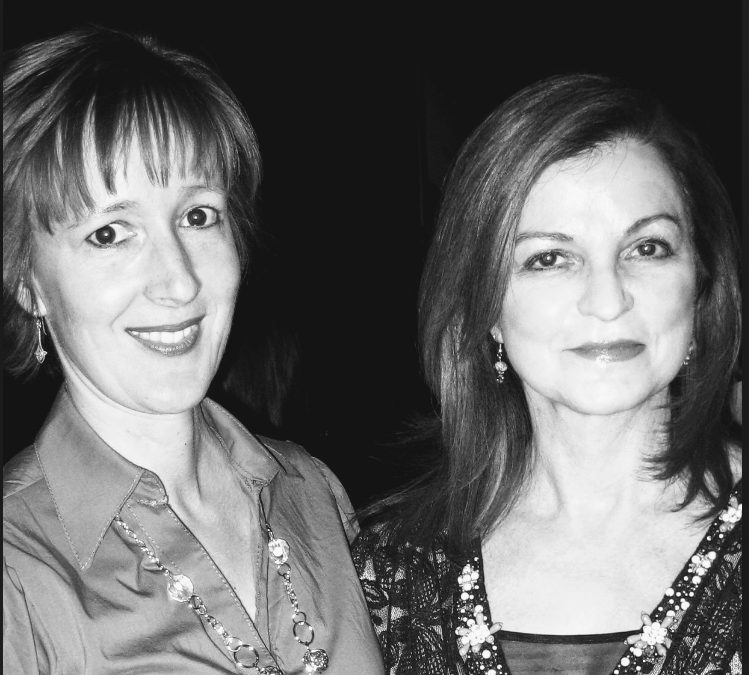
Mar 20, 2009 | Green World, Transcripts
By Alison van Diggelen, host of Fresh Dialogues
Transcript of Fresh Dialogues interview with Maureen Dowd. The interview took place at the Fairmont Hotel, Silicon Valley on April 2, 2009. To listen to the interview, click here
Alison van Diggelen: I’m pleased to welcome Pulitzer Prize winning New York Times columnist Maureen Dowd. Maureen – thank you for joining me today on Fresh Dialogues.
Maureen Dowd: Thank you Alison
Alison: So, first I want to talk about your Irish heritage. I understand that you were very close to your mother Peggy, and it’s been said that your columns are like letters to her. Do you feel that way?
Maureen: Oh, that’s very sweet; I’ve never heard that. There was a time when I first started in journalism when my mom stopped reading me actually because I was covering a suburb of Washington and writing about landfills and zoning. And so she said she’d only start reading me again if I got to some more interesting topics. So she is in my head in the sense that I want to inform and amuse the reader, and try to surprise them and tell them something they don’t know.
Alison: And is it your mother and your Irish blood that’s responsible for your humor and your biting prose, would you say?
Maureen: Hmm. We had an editor…I had a friend named Michael Kelly – he was the first journalist to die in the Iraq War – and we worked in the Washington Bureau of the (New York) Times together. We had an editor who used to call us GAEL FORCE (laughter)…as in G.A.E.L. But yeah…They say that the Irish understand about politics and writing and I hope it’s true. I like to think so.
Alison: You wrote in yesterday’s April 1st column “No More Hummer Nation” about America’s desire for all things big: big cars, living big, and spending big. And you ask a really good question: how do we come to terms with the gluttony that exploded our economy and still retain our reptilian American desire for living large? Do you have an answer to that question Maureen?
Maureen: It’s interesting because I had heard this French psychologist talk a few years ago on the radio about how Americans have…the reptilian part of their brain likes big things and that that’s who we are: we like big cars and McMansions and Costco where you go and you get 12 rolls of toilet paper and not just one. Whereas in Europe, you see people and they just go and get their food for the day and maybe one bouquet of flowers and one bag of groceries in their tiny cars. And so the question now is: how big do we need to feel to still feel American? As Obama tries to downsize us.
And the French psychologist is named G. Clotaire Repaille and he was hired by the American car manufacturers to justify the fact that they didn’t go green earlier and that why they kept making those huge SUVs, pickup trucks and Hummers long after they should have realized that those brands are not really where we needed to go. And so this guy – Repaille asserted that a reptilian part of the brain seeks tools of survival especially while the United States remains under threat of attack. This was after 9/11. He said you don’t want to go to war in a little Pinto. He patted a shiny black Hummer …a reconstituted military vehicle and called it quite reptilian. So that’s where their head was, even as recently as 2003.
Alison: Detroit just didn’t embrace that greener future? They were too tied up in the war…
Maureen: Yeah and I interviewed this great independent auto expert, named Marianne Keller who said when Rick Wagoner announced he was re-launching… buying the Hummer brand and re-launching it as a GM brand she was dumb-founded. She thought it was the most bizarre decision and it was just guys who wanted a macho car driving around Greenwich to get their bagels. And reporters who covered Detroit were so relieved about Wagoner being fired because they watched the industry for years and years and years refuse to embrace the future and just make all these stupid decision and reward themselves.
And I think that what’s depressing about the decade we’ve lived in is that America seems stupid and many many stupid decisions were made and I think that’s what Obama is focusing on turning around because he himself is a real smarty pants and his favorite thing is to be in a room with a bunch of eggheads and I think he wants Americans to be smarter and kids to be better educated.
Alison: Do you personally believe in a greener future? Is it something that you have embraced?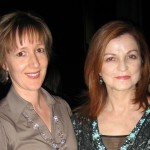
Maureen: Oh sure! And you know, a very little known fact is that when Jerry Ford was president his vice president was Rockefeller and he was a very moderate Republican you know, cosmopolitan. And he developed an idea for an energy plan for the country that would get us into alternative fuels and modern energy…and it was killed by lobbying from Ford’s chief of staff who was Dick Cheney. And so, if Dick Cheney had not done that, then our energy future would have been so much more advanced. So not only did he keep us going backwards for the eight years he was vice president, he started us going backwards many decades ago when he was Ford’s chief of staff.
You know everyone used to joke about two oilmen in the White House – was that too much? But there were all those ridiculous oxymorons like clean coal and the whole thing with Halliburton…the whole thing was just a time when America reeled backwards in many ways. And also, Bush and Cheney wanted to blow off all the international treaties as part of their desire to be a hyper power and so they couldn’t care less about Kyoto.
I covered the campaign of Bush’s father and Gore and I remember when Bush’s father called Gore, “Ozone Man” (laughter). It was just how they treated environmentalists: as sandal wearing, tree hugging idiots.
Alison: But you called Al Gore “practically lactating” over his eco views…
Maureen: Ooooh!
Alison: Do you feel a little more sympathetic now that he’s changed the world…?
Maureen: …Oh, I was sympathetic to him in terms of his ideas. I was just teasing him a little bit because he was so earnest and he could be a little righteous and self important. That’s not always the most effective way to communicate your ideas, even if the ideas themselves are right. I mean, certainly his ideas were right but he himself was – sometimes – a pompous messenger for them. He wasn’t that way in private, he just didn’t know how to get across a sense of humor and – things he had in private – in the public stage.
Alison: Did you ever coach him? Because he seems to have relaxed a bit recently.
Maureen: (laughter) No, I think it was one of those things: he came from a political family and his father was a famous senator with high expectations for him and he was always expected to be president and I just think he put a lot of pressure on himself and didn’t always make the right choices when he was under extreme pressure to be president. But I think in a way he’s enjoying himself more now that these expectations are not on him. He’s, you know, coming into his own in ways he couldn’t do in the campaign.
Alison: And as far as being green yourself, living a green life, do you take canvas bags to the store; do you think of the planet when you’re buying a car or buying an item for the house?
Maureen: For some reason, though I’m too young to have really had this grudge about World War II, I’ve always wanted to buy American cars. And I tried in my 20’s to buy American cars and I bought two Fords and they were really really terrible cars and broke down all the time… and I spent more on fixing them than I did on buying them. And so finally after a decade of struggling with Ford, I bought a Miata and I’ve had it since 1990 and I think it’s been in the shop once.
And I think that’s the essence of where America went wrong because we used to be just the place for excellence and products and real things. And somewhere along the line, not only did we give up our pursuit of excellence and actual products, but we began pursuing these financial products that didn’t exist, like derivatives, and as one congressman put it: we began packaging smoke. So we were trying to make money from money. So I always think of the time where I couldn’t buy America cars anymore as the time when America was somehow on the wrong path.
Alison: Beyond cars…what other green ways do you live? Is it something that’s on your mind on a daily basis?
Maureen: Well…yeah, I try. I try to get advice from Tom Friedman who is Mr. Solar around our office (laughter). He’s done a new book which is very involved with energy and his whole house is solar designed and I gave him for Christmas a solar lantern for his house. I ask him and he’s trying to coach me in how to be more environmentally correct.
Alison: Last night, you called him your “office husband”…
Maureen: …He is…
Alison: …How does his wife feel about that?
Maureen: (laughter) She likes me too. Yeah, he’s my office husband and when he gets depressed about the environment or the Middle East or something at the Times, he comes in – this happens very rarely – because Tom’s a very serious guy…but he’ll come in and go, “Let’s get a daiquiri!” (laughter) and then I know he’s not feeling good.
Alison: I have read his book, “Hot Flat and Crowded” – it’s excellent and he has a premise that America has lost its groove and can get its groove back by embracing green energy and green tech. What do you think about that?
Maureen: That’s true. I mean, this was the first campaign I’ve ever covered where I’d go and watch Hillary and Obama in the primary and they were both competing to come up with a plan for green jobs and for me it’s very exciting because for the last eight years that Bush and Cheney were in it felt like we were going backwards in every way. You know we weren’t coming into the 21st Century and we were kinda like the Flintstones – just not moving forward. So I love all that.
Alison: One final question. Talking of dreams, what is your dream day? How would your dream day go?
Maureen: Oooh. That’s something I always ask presidential candidates and they never have a good answer and I probably don’t have a good answer either. Let’s see, my dream day? Well it would definitely involve a movie because I love movies. Maybe an old movie, an old film noire movie like “Out of the Past”. Something with Robert Mitchum. And gosh, it would definitely involve a cute guy that I could bewitch…hopefully (laughter). And um, let’s see…it would probably involve a glass of chardonnay and um, and some volunteerism, definitely (laughter).
Alison: Some volunteerism? (laughter)
Maureen: And some green…you know…recycling (laughter)
Alison: So you would have a good green day?
Maureen: Yes, a green day.
Alison: Wonderful!
Maureen: And maybe some green guacamole or something (laughter)
Alison: And no Guinness?
Maureen: Guinness… hmmm, I think. I love Guinness but… I always worry that it might be a little fattening. But if it’s my dream day…why not? I’ll start off with…what’s that thing called when they combine Guinness and champagne? A black velvet or something? We can start the day with that…but only if you come with me. (laughter)
Alison: That sounds good. You’re on. We have a date.
Maureen: That’s a date!
Alison: (Pause) Maureen Dowd, it’s been a great pleasure. Thank you so much for being on Fresh Dialogues.
Maureen: All right. Thank you so much Alison.
To listen to the entire interview with Maureen Dowd: click here

Mar 3, 2009 | Quotes, The Arts
By Alison van Diggelen, host of Fresh Dialogues 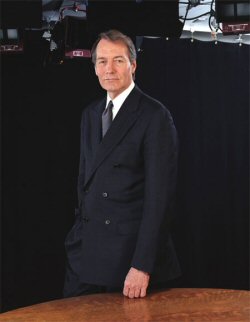
Extract from Fresh Dialogues interview dated March 3, 2009:
On his Great and Glorious Life
For the full transcript, click here
“I get up every morning with a new adventure. The adventure is fueled by interesting people. I get a chance to control my own destiny.”
On Silicon Valley’s role in this challenging economy
“The economy today is a place of uncharted waters. I think technology is part of the solution. Science and technology are part of the key to unlocking the future.”
On what Silicon Valley visionaries like Larry Page and Sergey Brin have in common
“Certainly they have in common curiosity, certainly those two have in common great intelligence. They all have in common a sense of wanting to explore the unknown. ..There is a passion about the future and they bring to a consideration of the future enormous tools.”
On joining Twitter
“I’m very excited about it. All these technologies are my friend. My interest is in distributing what I do. I am fortunate to have a reputation… a brand name…my interest in maximizing distribution is made for the technology community.”
On his role as a journalist
“I’m not in the role of being an advocate for anything. My goal is to provide the kind of analysis that helps people make a decision, to approach an issue. I don’t have to be the expert. My role is to ignite, inspire, create a platform for engagement by experts.”
On how he prepares for an interview
“Just read and read and read and read. And talk. Get on the phone with someone and say, what is it you think I should know?”
On Tom Friedman and the green revolution
“Tom Friedman has been on our show more than anybody. His range is extraordinary. His book Hot Flat & Crowded is a call for a new energy policy… There is an argument that can be made that America can reassert its leadership in the world by engaging the energy question.”
On his insatiable curiosity
“I constantly wanted to know and experience everything. But I was never intrigued by drugs. I always liked alcohol, but I never had cocaine in my life…I was never tempted – I was so in love with doing, experiencing, feeling, traveling…the experience itself was enough for me.”
On what he dreams about
“To engage life and have the experience of discovery. But I also want to create in a very specific way, a true global conversation.”

Feb 26, 2009 | Celebrities, Fresh Interviews, Green World, Transcripts
by Alison van Diggelen, host of Fresh Dialogues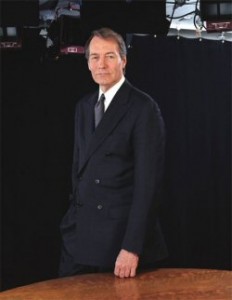
Today on Fresh Dialogues we talk to Charlie Rose, the acclaimed host of the Charlie Rose Show on PBS. His show has been described as the last refuge of intelligent conversation on television. I interviewed him after his Celebrity Forum lecture at the Flint Center in Silicon Valley on February 26, 2009. We talk about ENERGY POLICY, HIS INSATIABLE CURIOSITY AND WHY HE HAS A “GREAT AND GLORIOUS LIFE.”
Alison: Charlie, thank you for joining me today on Fresh Dialogues. You spoke highly last night about Silicon Valley and you’ve interviewed a lot of Silicon Valley luminaries. Can you talk about what – in your opinion – makes Silicon Valley so special and what these luminaries – like Sergey Brin and Larry Page – have in common?
CR: Certainly they have in common curiosity. Certainly those two have in common great intelligence. And they all have in common – I think – a sense of wanting to explore the unknown. The economy today is a place of uncharted waters, but also the world they live in. I interviewed today the President of Stanford University, John Hennessy, the cofounder of Twitter, Evan Williams; Reid Hoffman from LinkedIn and a friend of mine who is an entrepreneur from Los Angeles. There is a passion about the future and they bring to a consideration of the future enormous tools which they have learned, which include the computer and other things.
Alison: And does it give you optimism, being in Silicon Valley, that we have a future, that we’re going to come out of this (recession)?
CR: Yes it does. I think technology is part of the solution and so does Barack Obama – by the way. Not because he told me that, but because you read what he said. He said it in a speech to Congress, he said it on Inaugural Day and I suspect he believes it and will continue to say it: science and technology are part of the key to unlocking the future.
Alison: You’ve interviewed Nobel laureates, business leaders, world leaders…have you ever been tempted to influence government policy, business strategy or even enter the venture capital world, like Al Gore has done, because you must have so much wisdom in so many areas?
CR: I’ll take your question only to the last point about so much wisdom in so many areas. I have never been…I invest my own money in a whole range of different kinds of things, and when I say that I don’t want it to sound large, because it’s not. My role is as a journalist. I’m not in the role of being an advocate for anything. My goal is to provide the kind of analysis that helps people make a decision to approach an issue. If I can do that, then I’m in good shape.
Alison: But you’ve never been tempted to voice an opinion? If Tom Friedman or Obama were to say…
CR: Tom Friedman is very different. Tom Friedman writes a column…
Alison: Sure
CR: He’s not a reporter for the New York Times, although he may report within his column. But he writes Tom Friedman’s opinion…
Alison: But what do you say when Tom asks for your opinion… even if it’s off camera?
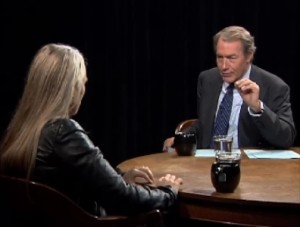 CR: Oh, it is always off camera. Tom and I have conversations about how we see the world and we share that idea. My interest in that conversation is because I’m a man of questions and curiosity and what I’m always doing is testing how I see the world against new ideas, new people, in the interest of somehow coming to…greater understanding. Tom Friedman has been on our program more than anyone else. His range is extraordinary, certainly from the Middle East to foreign policy in general and then technology and the whole question of alternative energy sources, our dependence on fossil fuel, and his new book, Hot, Flat and Crowded is in a sense I think, a call for a new energy policy. I mean the country – and this is not just the previous administration, it may go back for several administrations – has not had a serious energy policy.
CR: Oh, it is always off camera. Tom and I have conversations about how we see the world and we share that idea. My interest in that conversation is because I’m a man of questions and curiosity and what I’m always doing is testing how I see the world against new ideas, new people, in the interest of somehow coming to…greater understanding. Tom Friedman has been on our program more than anyone else. His range is extraordinary, certainly from the Middle East to foreign policy in general and then technology and the whole question of alternative energy sources, our dependence on fossil fuel, and his new book, Hot, Flat and Crowded is in a sense I think, a call for a new energy policy. I mean the country – and this is not just the previous administration, it may go back for several administrations – has not had a serious energy policy.
Alison: And what do you think of Tom’s premise that America has lost its groove and will get its groove back by embracing the energy technology sector and green tech?
CR: He believes, what Tom believes is that… “A” I essentially agree with his instinct and analysis about America having lost its groove, on the other hand, I think it can do it in many ways, of which taking the leadership in terms of alternative energy sources is only one way. But there is an argument to be made that the United States in a sense can reassert its leadership in the world by engaging the energy question.
Alison: You’ve said that the public has not persuaded the government that we’re prepared to make sacrifices in order to be green. What sacrifices do you think Americans need to make?
CR: No. I don’t think…it’s not the question of whether the public has not. The government has not persuaded the public that this is in the essential and long term interest of the United States.
Alison: Do you think Obama can do that?
CR: I think he has the core skills to do it. I think it takes a focus and I think it takes a passion and he clearly has signalled. You know, as we speak, it’s day 36 of the Obama administration and he’s clearly signalled that three things are at the forefront of his domestic concern: energy, health care and education. So it’s on his agenda. Therefore, can he take that kind of priority and move it into policy and achievement is a question that only time will tell.
Alison: Talking about curiosity, you’re known for your insatiable curiosity. Did that curiosity – going back to the early days: Charles Peete Rose Jr, as a young boy…did that curiosity ever get you in trouble as a child?
CR: Constantly
Alison: Can you tell us about that?
CR: No…oh God no. I constantly wanted to know and experience …everything. I was never intrigued by drugs. I always liked alcohol for example, but I was never intrigued by drugs and so I never had cocaine in my life, or a whole range of…none of the heroin. Never had it. It wasn’t because I deserve any medal for that…I don’t – I was never tempted to do it. I asked Sean Penn once why he never did drugs and he said because I liked alcohol. I mean, I never did drugs either and was never tempted to do it, and perhaps the reason was not so much I loved alcohol but because I was simply in love with the idea of doing, experiencing, feeling, traveling and I always found out that the experience itself – of doing those things – was enough for me.
Alison: And where did that curiosity come from Charlie?
CR: It’s two things. It may be a bit genetic but I don’t understand that because my parents had no relationship to what I do. It may have come from the roles that I played. Malcolm Gladwell has a new book called Outliers
Alison: Yes
CR: Which is a whole notion that you’re influence by the circumstances that put you in a certain place. My circumstances put me in a country store which my father owned but my mother ran and so therefore my role was to be able to engage people. Curiosity was a great tool to engage.
Alison: So you actually served in the store?
CR: Serve would not be the word we would use. Work would be a better word.
Alison: OK
CR: It wasn’t service. I mean I didn’t volunteer. My father said this is what you’re going to do. I was an only child, so there was no escape.
Alison: Tell me, you also said you’re curious about what makes people tick, what they dream about. Mr. Rose – what is your dream?
CR: My dream most of all is to engage life and to have the experience of discovery. I think you do that better with a woman in your life and I don’t have that at this time. But I also want to create, in a very specific way, a true global conversation.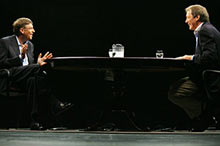
Alison: And how do you intend to do that? Or are you doing that already?
CR: I am doing that already, but I can do that in a much more, sort of, ordered way.
Alison: Are you planning to use the web?
CR: I am using the web – that’s a given right now.
Alison: But…further, into China etc.?
CR: Sure sure. Not only that, but over the air and on cable broadcast. It is my curiosity about those things that drives me forward. I mean, this has been a great day – I learned more about Twitter today because I had the CEO of Twitter on the show today; I learned more about LinkedIn because I had the CEO and cofounder of LinkedIn on. I have a greater sense of where Stanford stands today because of my experience with John Hennessy, the President of Stanford. I mean, all of that feeds my curiosity and it takes me to another place.
Alison: There are only so many hours in the day. How do you prepare for a day like today? You have to be the expert…in Twitter, the expert in…
CR: No, no, it’s not that. I don’t have to be the expert. That, you have to understand, is not what I have to be. I will never hold myself out to be the expert. My role is to be, in a sense, both ignite, inspire and create a platform for engagement by experts, it’s not to be an expert.
Alison: But you have to know enough about the subject to ask the right questions?
CR: Knowing enough and being an expert is a very different thing, you know, and it would be foolhardy to think that because I can read over the next 24 hours some…I’m doing one of the key executives for Google (Marissa Mayer)…you know it’s silly for me to think in the next 24 hours, and here we are at 10.30pm, and I’m going to leave my hotel at 10 (am), that I’m going to be able to be some expert in anything. I bring to the table already a broad familiarity with Google, and I bring to the table, because of conversations in the last week with Marc Andreesson, Jeff Bezos, I’m grounded in where technology is and what they’re doing and all of that will go with me to the Google campus, but I have no illusions about the fact that I’m supposed to be an expert.
Alison: And how will you prepare? Walk us through how you will prepare for tomorrow…
CR: Just read and read and read and read. And talk. Get on the phone with somebody and say: tell me, what is it you think I should know? And then they may tell you seven things you know, and they may say something you hadn’t thought about.
Alison: And where do you get your information? I know you said last night you read all the newspapers, but do you go online and Google the person?
CR: Oh sure. I will Google the person if I’m going to a dinner party tonight and they’re going to be there.
Alison: And what about Twitter? Are you on Twitter yet?
CR: As of tomorrow
Alison: Great
CR: I’m very excited about it. You know I have a nightly television program which…all these technologies are my friend…
Alison: Yes
CR: Because what my interest in… is to distribute what I do. I’m fortunate in that I have a reputation…must use that awful word, a brand name, because I’m not so much a product. But I have all those things, so therefore my interest in maximizing distribution is made for the technology community.
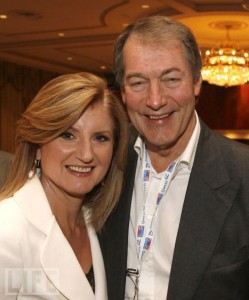 Alison: And do you see yourself doing this until …your last day on earth?
Alison: And do you see yourself doing this until …your last day on earth?
CR: It’s not an idea that I find abhorrent.
Alison: Do you see yourself ever retiring?
CR: No I don’t. I mean, I have a great and glorious life.
Alison: And what makes it great and glorious, Charlie? What is it that feeds you?
CR: (pause) What makes it great and glorious is the fact that I get up every morning with a new adventure.
Alison: Yes…
CR: The adventure is fueled by interesting people. I get a chance to control my own destiny. I do something that is immediately either appreciated or not. I get feedback. And then I meet people like you. Different people, of different skills who you’d never necessarily know or understood that would come on your scope.
Alison: And you enjoy that stimulation?
CR: Yes
Alison: Great. Well, Charlie Rose, I really appreciate your taking the time for Fresh Dialogues. It’s been a pleasure.
CR: Thank you
To listen to the Fresh Dialogues interview with Charlie Rose, click here
For another interview where Charlie Rose provides the answers, not the questions, check out Gillian Tett’s Lunch with Charlie Rose.
For more Fresh Dialogues interviews click here












